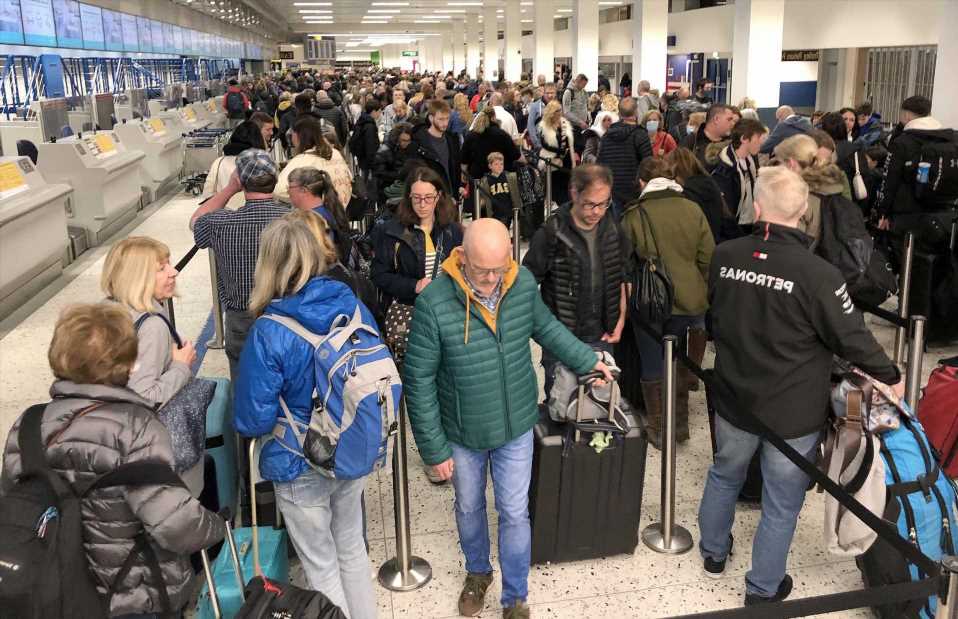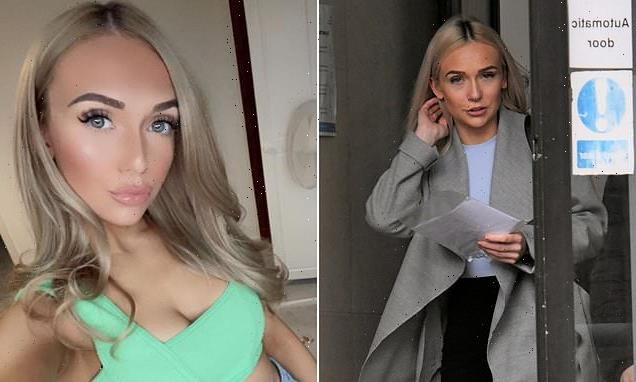MILLIONS of families and pensioners will get a pay rise from tomorrow as benefit rates go up.
Universal Credit, child benefit and the State Pension are among the payments that will increase and it comes as the cost of living crisis is squeezing finances.
Benefits will rise by 3.1% from Monday (April 11) giving incomes a boost.
But the cost of living crisis means prices are rising faster, and inflation could hit as high as 8% leaving many feeling the pinch.
Households have faced a tide of rising costs, from energy bills and council tax to the supermarket shop.
Families with two kids will be better off by nearly £60 a year as child benefit amounts will go up.
Read more on benefits
Full list of medical conditions and benefits that get you free NHS prescriptions
How to get up to £32k free cash for rent if you’re on Universal Credit
Retirees will see the new State Pension rise by up to £5.55 a week – giving them an extra £288 in their pocket over a year.
A family of four could be as much as £370 better off a year as the basic rate for Universal Credit goes up, along with and extra cash for kids and carers.
The exact amount more you'll get will depend on your circumstances, and the date you'll get the extra will depend on when you normally get your benefit payments.
Don't forget to check that you're getting all the benefits you're entitled to by using a free benefits checker, as this could boost your budget more.
Most read in Money
OH BABY All the benefits rising for parents from Monday – when it will hit bank accounts
You’ve been using your kettle wrong – and it’s adding £87 to your energy bill
Flat in the heart of London is £1,100 a month – but it's tough to get to bed
I run Britain’s CHEAPEST shop and we sell everything for 20p
There's also more help you can get with bills and food if you're struggling – from energy bills to council tax rebates.
Here are the new benefit rates for 2022-23 so you can check how much extra you might get.
Don't forget that if you've had any other change in circumstances that affects how much you get, this will be reflected too.
Universal Credit
Standard allowance (per month)
- For those single and aged under 25, the standard allowance will rise from £257.33 to £265.31
- For those single and aged 25 or over, the standard allowance will rise from £324.84 to £334.91
- For joint claimants both under 25, the standard allowance will rise from £403.93 to £416.45
- For joint claimants where one or both are 25 or over, the standard allowance will rise from £509.91 to £525.72
Extra amounts for children
- For those with a first child born before April 6, 2017, the extra amount is going up from £282.50 to £290
- For those with a child born on or after April 6, 2017 or second child and subsequent child, the extra amount is going up from £237.08 to £244.58
- For those with a disabled child, the lower rate addition payment is going up from £128.89 to £132.89 and the higher rate from £402.41 to £414.88
Extra amounts for limited capability for work
- For those deemed to have limited capability for work, the extra amount is going up from £128.89 to £132.89
- For those deemed to have limited capability for work or work-related activity, the extra amount is going up from £343.63to £354.28
Extra amounts for being a carer
Universal Credit claimants can get an additional amount if caring for a severely disabled person for at least 35 hours a week.
The amount you get a month will rise from £163.73 to £168.81
The work allowance rates have already risen from November 24 last year and will rise again from April 2022 onwards.
Increased work allowance
- The higher work allowance (no housing amount) for someone claiming Universal Credit with one or more dependent children or limited capability for work is going up from £557 to £573
- The lower work allowance for someone claiming Universal Credit with one or more dependent children or limited capability for work is going up from £335 to £344
Housing benefit
Single person
- Aged under 25: Increasing from £59.20 to £61.05
- Any age and on main phase ESA: Increasing from £74.70 to £77.00
- Aged between 25 and state pension credit age: Increasing from £74.70 to £77.00
- Has reached pension age: Increasing from £191.15 to £197.10
Lone parent
- Aged under 18: Increasing from £59.20 to £61.05
- Any age and on main phase ESA: Increasing from £74.70 to £77.00
- Aged between 18 and state pension credit age: Increasing from £74.70 to £77.00
- Has reached state pension age: Increasing from £191.15 to £197.10
Couple
- Both aged under 18: Increasing from £89.45 to £92.20
- One or both aged between 18 and state pension credit age: Increasing from £117.40 to £121.05
- Any age and on main phase ESA: Increasing from £117.40 to £121.05
- One or both have reached pension age: Increasing from £286.05 to £294.90
Other
- Dependent child/young person aged under 20: Increasing from £68.60 to £70.80
Pension Credit
Retirees on a low income can get it topped up via Pension Credit.
Pension Credit will rise from £177.10 a week to £182.60 or for couples, from £270.30 to £278.70
If your income is lower than this, you should be eligible for the benefit.
You could get the ‘Savings Credit’ part of Pension Credit if both of the following apply:
- you reached State Pension age before 6 April 2016
- you saved some money for retirement, for example a personal or workplace pension
This part of Pension Credit will rise from £14.04 a week to £14.48 or for couples, from £15.71 to £16.20.
There are also top up amounts, for instance if you're caring for someone else or are disabled.
You can find out more about Pension Credit including how to apply in our guide.
Attendance Allowance
Attendance Allowance helps with extra costs if you have a disability severe enough that you need someone to help look after you.
It’s paid at two different rates and how much you get depends on the level of care that you need because of your disability.
The higher rate will rise from £89.60 to £92.40, while the lower rate will also go up from £60 to £61.85.
Carer's Allowance
You can claim Carer’s Allowance if you care for someone at least 35 hours a week and they get certain benefits.
The rate will increase from £67.60 to £69.70 a week.
Disability Living Allowance
The Disability Living Allowance is being replaced by Personal Independence Payment (PIP) for disabled people.
You can only apply for DLA if you're under 16. Older people whose DLA claim hasn't come to an end may see payments go up.
- Highest amount will rise from £89.60 to £92.40
- Middle amount from £60.00 to £61.85
- Lowest amount from £23.70 to £24.45
And for the mobility component:
- Higher amount from £62.55 to £64.50
- Lower amount from £23.70 to £24.45
Employment Support Allowance
Employment Support Allowance (ESA) tops up workers' pay if they're on a low income.
- Under 25-year-old, from £59.20 to £61.05
- Age 25 and older, from £74.70 £77.00
- Lone parent under 18, from £59.20 to £61.05
- Lone parent 18 or over, from £74.70 £77.00
There are also further rates for couples, those with disabilities or caring responsibilities.
Jobseekers Allowance
Jobseekers Allowance (JSA) supports those who are out of work while they look for a job.
It is being replaced by Universal Credit but if you are still claiming it you'll see payments go up next year.
For under 25-year-olds, contribution-based and income-based payments will go up from £59.20 a week to £61.05, and from £74.70 to £77.00 week for those who are older.
There are also further rates for couples, those with children, disabilities or caring responsibilities.
Maternity, paternity, adoption and shared parental pay
Pay for mums and dads taking time away for kids, including those adopting, has already gone up.
The statutory rates increased from the start of April from £151.97 to £156.66, for maternity, adoption, paternity and shared parental pay.
Parental bereavement pay also increased by the same amounts.
Maternity allowance
New mums who don't qualify for standard maternity pay could still get a payment adding up to thousands of pounds from Maternity Allowance.
It will rise from £151.97 a week to £156.66 from April.
Personal Independence Payment
Rates for Personal Independence Payments (PIP) will rise.
PIP helps with the extra cost of living for those with illnesses or disabilities.
Payments for the daily living component will rise from £89.60 to £92.40 for enhanced and from £60 from £61.85 for standard.
For the mobility component it will rise from £62.55 to £64.50 for enhanced, and £23.70 to £24.45 for standard.
Statutory Sick Pay
You might be able to get statutory sick pay (SSP) if you're off work, including if you're isolating due to the pandemic, even if you aren't sick yourself.
SSP was £96.35 per week and it is paid by your employer for up to 28 weeks.
It has already increased in April to £99.35.
State Pension
Thee full rate of the new State Pension will rise from £179.60 a week to £185.15.
For the basic part of the old state pension the rate will rise from £137.60 to £141.85.
How much pension you get will depend on your entitlement.
Child Benefit
There are two child benefit rates, one for the eldest child and another for each further child or children.
Read More on The Sun
Brooklyn marries billionaire heiress in celeb-packed wedding of decade
UK sends missiles to blitz Putin’s sea fleet as Boris visits ‘lion’ Zelensky
The current rate for your eldest or only child is £21.15 per week and that will rise to £21.80.
Then for each of your other children it's £14 a week – that will rise to £14.45 a week.
We pay for your stories!
Do you have a story for The Sun Online Money team?
Email us at [email protected]
Source: Read Full Article











